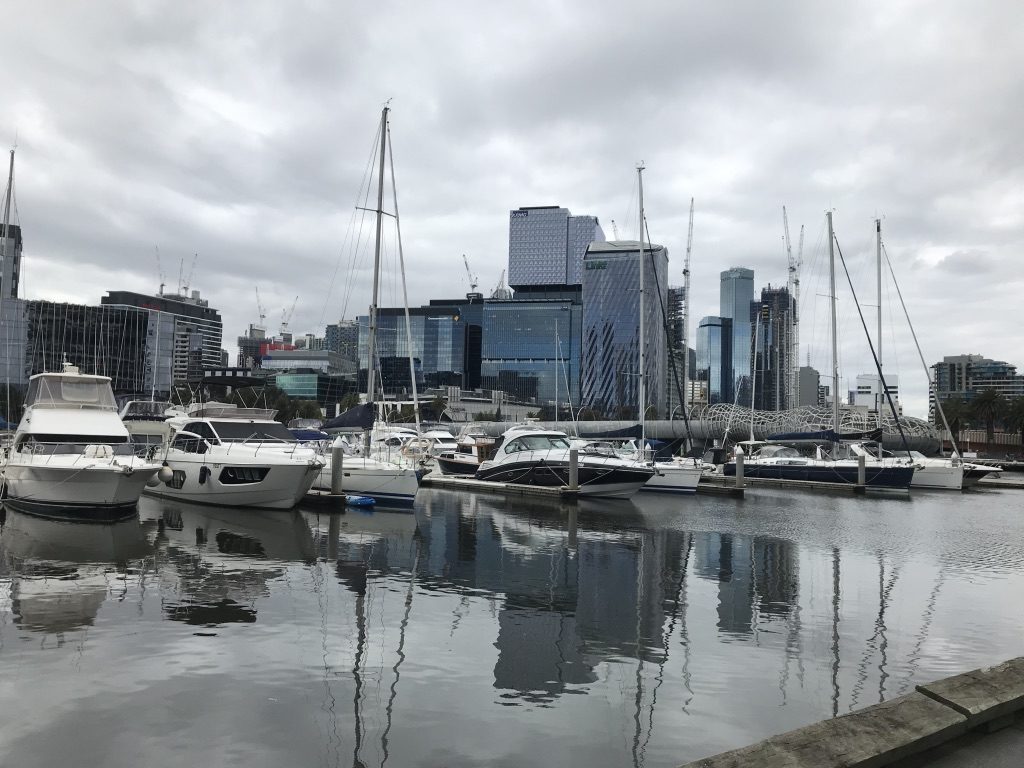Why Regular Boat Maintenance is Crucial

Boat Maintenance – “But I Only Use My Boat Once a Year”
Recently, we were on a boat and encountered several issues that required urgent attention. The owner repeatedly mentioned, “But I only use my boat once a year for the Melbourne Cup Carnival.”
We’ve seen this scenario many times on various boats. While this particular case was severe, we often come across boat owners who only use their boat a few times in summer, leaving it idle in its pen for the rest of the year and therefore aren’t aware that they need a preventative boat care program.
Common Boat Problems – What’s Wrong with Infrequent Use?
Marine engines and systems seem to be particularly susceptible to degradation due to lack of use! The number of times we have had a boat buyer announce with excitement that the boat they want to buy has “low hours” is staggering. This is because the only point of comparison we have is with cars – and if you get a car with low K’s it is awesome! In fact we recently bought a car that is 6 years old and had really low k’s and we thought we had won the lottery.
However – if that was a boat, we could say with confidence that “it is in trouble!”. What we know is that 98% of the time, a boat that isn’t used is also neglected. I mean – why would you look after something that you get no joy from? Unfortunately most of the time this means the boat, at some point, will be fixed up for sale and will become somebody else’s problem.
So ultimately, infrequent use of a boat can cause damage that will cost a fortune to fix. So even if you don’t have the time to run your boat frequently – get someone else to do it. Just this can save you.
Common Problems for Boats
Things to be Aware of When Looking to Buy a Boat
Good Reasons to Get a Thorough, Independent Pre-Purchase Inspection
When a boat is left unattended in its pen over the Winter months or most of the year round, several issues can arise:
The possible problems:
- Engine Issues: The engine can seize up or become faulty due to lack of use. This can lead to expensive repairs or even engine replacement, leaving you stranded when you want to use your boat.
In fact, we have experienced this on multiple occasions when boat owners have contacted us to skipper their boat or give them boating lessons (so it is the first time we have stepped onboard). After doing the engine checks we have concluded that we can’t use their boat due to engine problems.
Sometimes they are new owners and are crushed by the news (and this is why we can’t stress enough that you organise a thorough, independent pre-purchase inspection before buying a boat). And if they have owned the boat for some time – then this becomes one more nail in the coffin of their broken boating dreams. - Bilge Pump Problems: The bilge can fill with water if the bilge pump fails, potentially causing an electrical short circuit. Water in the bilge can lead to sinking or severe water damage to the boat’s interior and systems.
Recently we were asked to help with an assessment on a boat that had excessive water build up in the bilge. The water level had affected the electricals on the starboard side of the boat so a marine electrician was called in to assess. He found a badly corroded electrical panel which needed to be disconnected and repaired to avoid further damage and possible fire. - Leaks and Water Damage: Rain can cause leaks, leading to damage to flooring, carpets, or furniture. This not only affects the aesthetics but can also lead to rot and structural issues, making the boat unsafe and uncomfortable. This can happen due to clears breaking down and no longer being weatherproof, or the sealants around windows and deck joints degrading and losing their watertight integrity, or structural cracks large enough to allow water ingress.
- Mould and Moisture: Moisture absorption can cause mould growth in covers, ceilings, and flooring. Mould is not only unsightly and smelly but can also pose health risks to you and your passengers, potentially causing respiratory issues. We see many boats which are not cleaned on a regular basis and mould starts to grow on the clears, covers and or internal furnishings. Once it starts it can spread quite fast making the boat uncomfortable to use.
The easiest way to stop this is to have a regular wash routine so that any small mould spores are washed away before they can take hold. Additionally a dehumidifier can be used inside the boat to keep it dry and mould free. - Waste-water Pump Issues: A malfunctioning pump can lead to water/sewage overflow. This can cause unsanitary conditions and unpleasant odours, making your boat unusable until the issue is resolved.
We arrived to deliver boating lessons to a client who had owned his boat for several years but had only used it a few times and had not been told that the waste-water needed to be emptied. When I arrived to deliver the boat lessons we looked into the bilge as part of the vessel familiarisation process. What we found could only be described as a poo-nami. This made his boat unusable for several months as he organised to have it cleaned, sanitised and deodorised. - Cable Deterioration: “Cable cancer” can cause electrical circuits to short or even cause fires. Especially with older boats, often as repairs are done or new equipment is installed, the old cables are just left in place and are all too often not terminated.
We managed a restoration project on a 1983 Bertram which had a full electrical overhaul. 4 wheelie bins of old cables and redundant equipment were removed from the boat – cables that could have led to increased corrosion or fire. - Seacock Seizure: Seacock fittings (seawater intake valve) can seize and become non-operational. This can prevent you from controlling water intake and discharge, leading to flooding or inability to operate certain systems on your boat. This is one of the key signs of a lack of preventative boat care and worst case scenario – can lead to uncontrolled water intake and sinking.
- Deterioration: Covers, paint, gelcoat and other exterior elements will deteriorate if not regularly maintained. This not only affects the look of your boat but also reduces its resale value and can lead to further damage if protective layers are compromised.
Specifically it can lead to Delamination. This is when the layers of fibreglass cloth and resin separate from each other or from the core sandwiched between the layers. It is usually caused by physical stress to the fibreglass surface which splits the surface skin and allows water to enter the laminate and travel into the core. This is “death” for a fibreglass boat!
The best way to avoid this is to have a preventative boat care plan in place that continually adds a fresh coat of protection to your boat and allows for regular inspections so you can find and fix any problems before they progress. - Marine Growth: Seaweed, mussels, and rust can build up on the hull, propellers, and exhaust, rendering the boat unusable. Marine growth can significantly affect the performance, speed, and fuel efficiency of your boat if it is not too bad.
Or at its worst it can cause 1. major hull damage allowing osmosis to take hold 2. render useless the corrosion protection system on the boat (at its worst) requiring costly repairs and maintenance 3. Restriction of the intake valves stopping adequate water flow to the engine and other seawater cooled systems which can lead to boats catching fire – remember the boat fire on Port Phillip Bay?
When marine growth is severe, it renders the boat unusable because the growth can choke the propellers and exhaust and seawater intakes, inhibiting their functions and causing further damage to the boat if the engines are started.
Unfortunately, when it is in this state – the hull can be cleaned off and you can put on a fresh coat of antifoul over the top, essentially making the boat look perfectly healthy. We have seen this done with boats just before they are put on the market for sale. The antifoul covers up the pitting and damage to the hull which can lead to osmosis. It usually looks good from afar, but far from good! - Corrosion: Because boats live in water they need to have a corrosion protection system in place. When this system fails due to excessive marine growth on the hull, expired anodes, or redundant wiring through the boat (to name a couple of possibilities) corrosion can attack various metal components including engines and engine mounts. Corrosion can lead to very costly repairs being required – including replacing engines or lifting out engines to repair the mounts.
From our experience this is one of the least understood requirements in the marine world. Getting this checked when doing a pre-purchase inspection on a boat can save you thousands.
Preventative Boat Care
We have been heard saying, on the odd occasion… “Preventative maintenance is, with your eyes closed, 3 times cheaper than fixing it when it breaks.” This is what we have observed in our 35+ years of messing around with boats – but also the various marine mechanics, engineers and electricians that we work with also agree.
Regular maintenance is key to avoiding costly repairs and ensuring your boat is always ready for use.
The Solution to Preventative Boat Care and Boat Maintenance
The solution to most of these problems is simple: time and consistency.
As the most basic action boats should be started up every 2 weeks or at the outside, once a month, all year round, and inspected for any potential issues. This includes starting the engines and all other onboard systems. Every 6 to 8 weeks your boat should be taken for a run, not just started up in its pen. This has 2 functions – first, it runs the engines under load ensuring all the systems stay lubricated and secondly it helps to clean off any growth on the hull and propellers – helping to maintain the anode and antifoul functions. Doing this can help identify problems early and keep your boat in top condition.
Fun Fact about Boat Maintenance
The best time of year to have work done on your boat is in Winter. Marine mechanics, electricians and other professionals are often looking for work and can complete jobs more quickly.
After the AFL finals in Melbourne, marine professionals’ schedules fill up fast. It is known as breakdown season – because people return to their boat to find it not functioning after its Winter neglect and frantically call around to find someone to fix it. We, in Melbourne, then find too many boats and not enough technicians to get things done.
By checking your boat monthly during the Winter, you can identify any issues and have them fixed before the rush and in time for Spring. If you’re time-poor, we can easily organise someone to perform these checks for you.
BOATING SERVICES

Boating Instruction
Boat handling courses so you can boat with confidence.

Skipper Services
Hire a skipper and relax with family and friends.

Purchase Advice
Find the ideal balance and boat for you

Boat Restoration & Project Management
From minor repairs to major works
